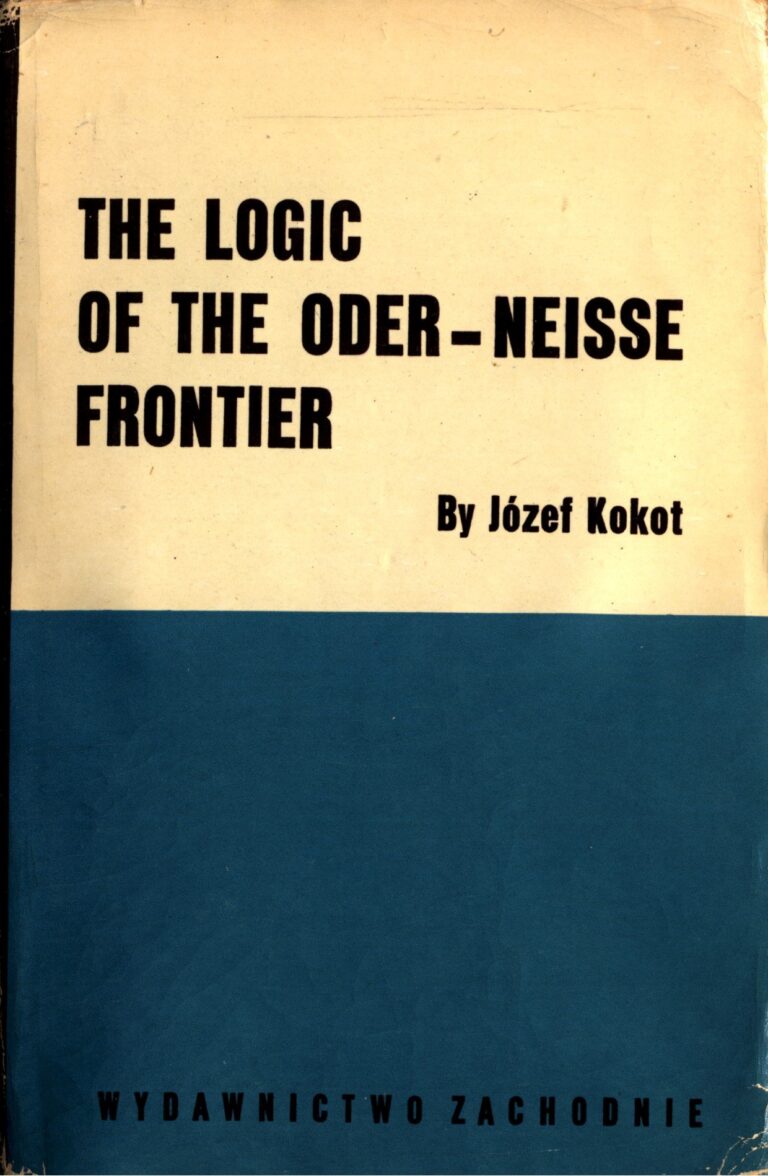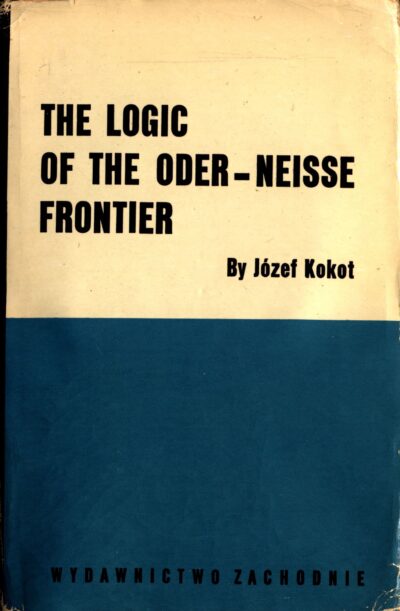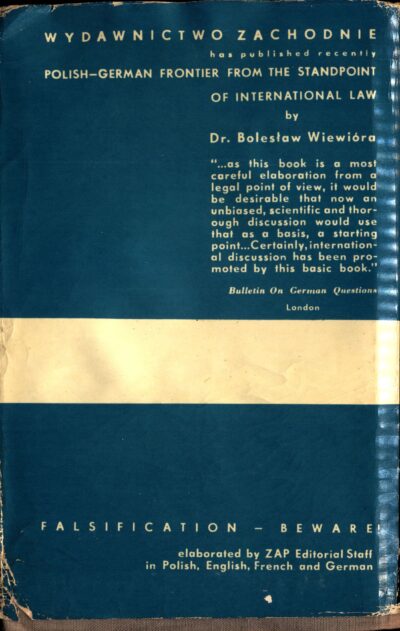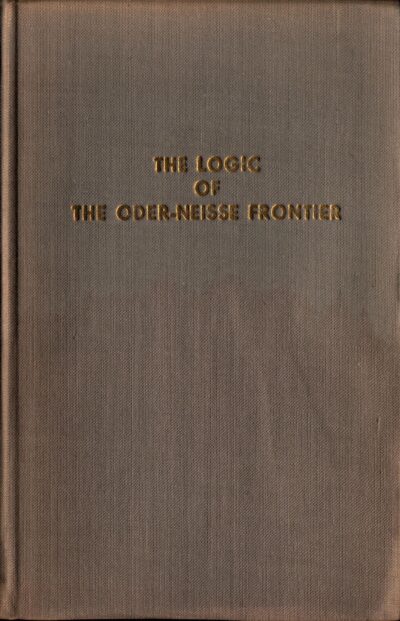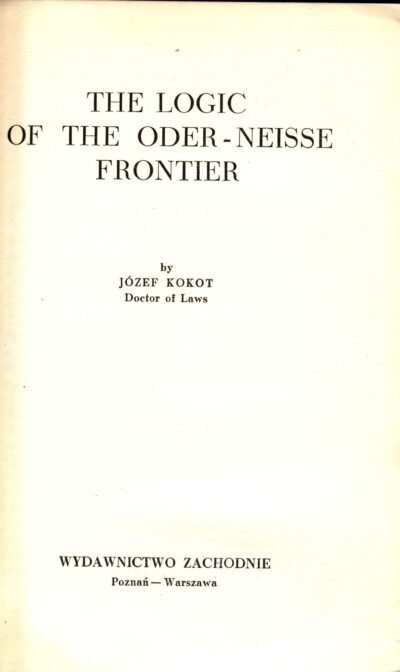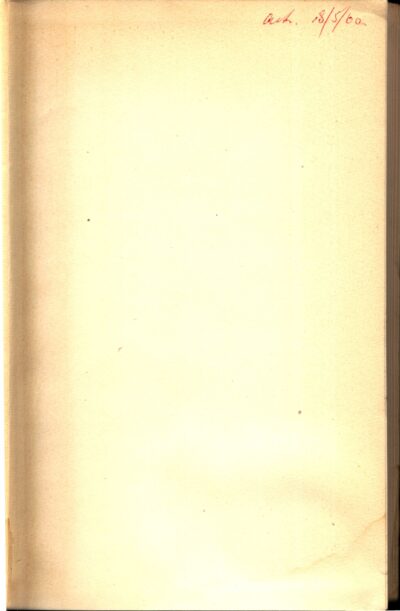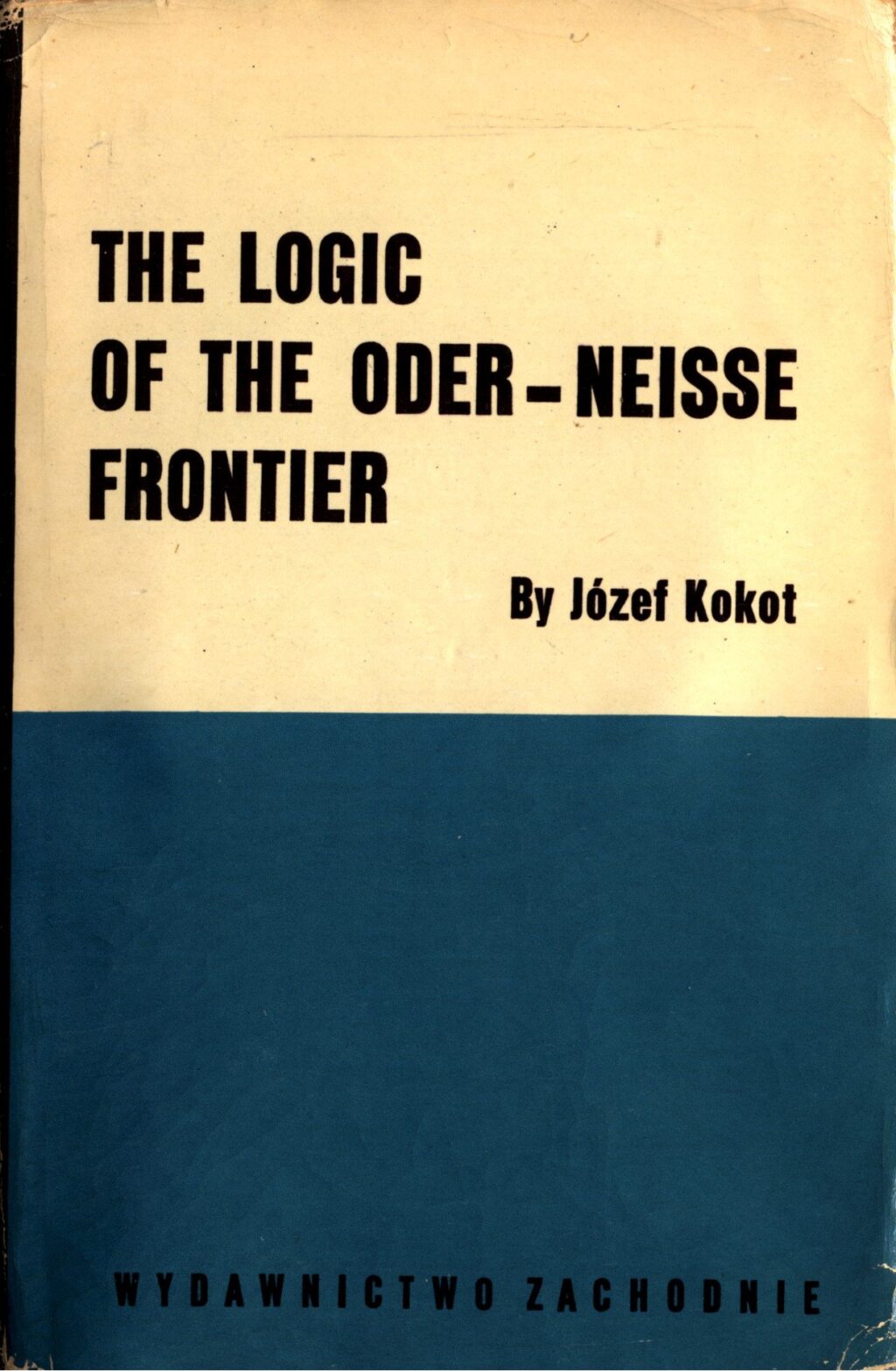Jozef Kokot, The Logic of the Oder-Neisse Frontier (1959)
The Oder-Neisse frontier was a highly controversial border line drawn between Poland and Germany at the Potsdam Conference in 1945. The line redrew the border of Poland westward, ceding much that had previously been considered German territory, and this was done partly to compensate for the fact that the USSR had itself absorbed much of what had previously been considered Polish territory further east.
The Oder-Neisse line was proposed by the USSR, which had an inherent interest in extending the territory of the Eastern Bloc. However, it was initially opposed by the Western Allies America and Britain, who argued that this massive redrawing of borders would involve the displacement of too many Germans and potentially turn Germany into a dissatisfied state anxious to recover its losses, in much the same way as it had been after World War One. However, by the time the Potsdam Conference was held, Soviet troops already occupied the territory, so the West was forced to accept the arrangement as a temporary fait accompli, with the issue to be finally determined at a future peace conference. Winston Churchill, whose time at Potsdam was interrupted by the need to fight a general election, would later denounce the concession as part of his famous ‘iron curtain speech’.
While the Communist East German Government accepted the Oder-Neisse line as a matter of socialist solidarity amidst the Cold War bifurcation of Europe, for the next 25 years West Germany strenuously protested that such a significant portion of the nation’s territory was effectively being annexed, and nine million of its citizens had been uprooted from their homes (these people formed powerful refugee lobby groups which became a significant force in West German politics). In the late 1940s and early 1950s this was a notable divisive issue of the Cold War, debated alongside more major contests such as the Berlin Airlift. However, by the late 1950s America made it clear that it had largely accepted the Oder-Neisse line, and West Germany gave up the fight in 1970, with the border remaining in place to this day. In the intervening years, there had been intense debate between the two perspectives, with The Logic of the Oder-Neisse Frontier being a partisan Polish justification of why Poland was legally entitled to the territory.
While in a Cold War context America would generally have been quick to denounce the territorial aggrandisement of a communist nation, its more neutral position was partly informed by the fact that it had to be sensitive to the sentiment of anti-communist Polish immigrants, who naturally wanted to see the territory of their home nation large and strong, and who thought that the Oder-Neisse line was just compensation for the horrors that Germany had inflicted on Poland during the recent war. This dilemma was even more acute for Robert Menzies, whose Liberal Government benefitted significantly from the votes of anti-communist immigrants, including a number of Poles. Indeed, it appears that Menzies was likely sent his copy of The Logic of the Oder-Neisse Frontier by a Polish immigrant trying to persuade him on the issue.
Menzies for his part was quite vague in articulating any clear Australian position on the Oder-Neisse issue. The closest he came was in a House of Representatives speech given in 1961 on the topic of Berlin, in which he explained that the West German government ‘have withheld formal recognition of the Oder-Neisse line as the Eastern frontier of a future Germany on the ground that the determination of Germany’s frontiers is properly a matter for an all-German peace treaty.’
This prompted a sharp rebuke from Gough Whitlam, who called out Menzies’s equivocation:
‘The reason why the Oder-Neisse line, for instance, which is basic to this question of self-determination for East Germany or for Poland, is never mentioned is that the honorable gentlemen who raise the subjects of Soviet imperialism, the shifting of boundaries and the acquisition of territory do not want to alienate Polish migrants in this country by suggesting that the pre-war boundary between Germany and Poland ought to be restored. Those honorable members do not wish to alienate German migrants by suggesting that the present de facto boundary ought to be maintained. Indeed, there is a very considerable lack of frankness on this subject.’
Menzies’s copy of The Logic of the Oder-Neisse Frontier is thus an artefact of the complex manner in which immigrant identities and loyalties impact on Australian politics, and influence the strategic decisions made by our leaders. Whitlam himself would later be hesitant to allow South Vietnamese refugees into Australia, because like the Poles, as anti-communists they were likely to vote Liberal. Clyde Cameron recorded Whitlam as having a private outburst in which he said ‘I’m not having hundreds of f****** Vietnamese Balts coming to this country’.
You might also like...
Sign up to our newsletter
Sign up for our monthly newsletter to hear the latest news and receive information about upcoming events.

